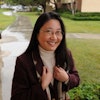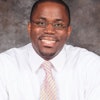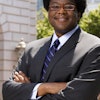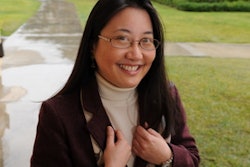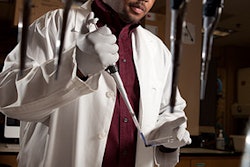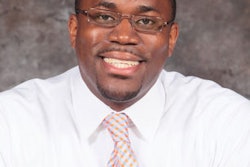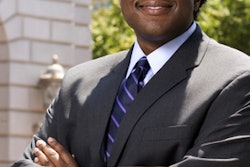Dr. Alexes Harris remembers well when as a high school junior she lost a classmate to senseless violence. He’d been briefly detained by police for allegedly selling drugs. A few days later he was discovered shot to death. Investigators suspect his supplier was responsible for the murder.
“He was a good kid; he went to good schools. He’d just gotten caught up,” recalls Harris, an associate professor at the University of Washington, or UW. “The media automatically labeled him a gang member because he was a Black boy, wearing khakis with a bullet wound to the head.”
The incident had such a profound impact on Harris that she vowed to become a public defender to help keep children like her friend out of the criminal justice system. An undergraduate course at UW a few years later, however, convinced her that the field of sociology was the best fit for her to make her mark and a difference.
“Ten years, almost to the day, I was teaching that very same course — social problems — at my alma mater,” gushes Harris, a Seattle native. “My passion is giving a voice to the voiceless, those who don’t have the resources to speak out.”
A Ph.D. in sociology and countless accomplishments later she has demonstrated her dedication through a body of work that focuses on social stratification associated with racial and ethnic disparities in the criminal justice system.
“She’s profoundly interested in highlighting the social inequalities in the criminal [justice] system,” explains Judy Howard, the divisional dean of social sciences in UW’s College of Arts and Sciences.
“Many people do work in this arena, but Alexes takes her mission so seriously. She’s an example of the best of what academia can do to make a difference in the lives of underserved communities. Her values shine through in the work that she does.”
Harris has published 10 peer-reviewed articles and three book chapters; she also has a book manuscript and a number of other projects in the works. Her most innovative work to date highlights the financial burden that fines and court costs impose mostly on poor people accused of crimes. Many end up incarcerated, Harris says, because of their inability to pay the cost of defending themselves.
“That is a gross inequality that is far too common; it tethers poor people to the system simply because they’re poor,” she says. “Those who enter this system acquire an enormous burden of debt that often condemns them to a life of poverty and a high probability of criminal recidivism.”
Her newest line of research focuses on how limited structural opportunities shape individuals’ capacities to escape the prison system and build lives that allow them to avoid recidivism.
“I’m trying to make a difference in the lives of marginalized people,” she says. “That’s what’s been the best part for me, knowing that I have been able to produce work that has been able to impact public policy and, ultimately, [give] a voice to many marginalized people who don’t have a voice.”
The popular professor regularly earns high marks with her students, and she also has been nominated for UW’s Distinguished Teaching Award. Harris has won the Pan-Hellenic Association’s Excellence in Teaching Award twice, as well as the UW sociology department’s Excellence in Faculty Teaching Award. She is an advisory board member for the Racial Disparity Project of the Defender’s Association and a founding member of Women Investigating Race, Ethnicity and Difference, or WIRED. WIRED is an organization comprised of UW faculty women of color who share and support each other’s scholarly work.
Though proud of her accomplishments, the wife to Eric Hampton and mother of two young children, Alana and Jaylen, shrugs it all off as merely her contribution to solutions for a widespread societal problem.
“I really just want to make a difference,” she says. “I know it sounds corny, but it’s true.”
Title: Associate professor of sociology, University of Washington Education: Ph.D., University of California, Los Angeles; M.A., University of California, Los Angeles; B.A., University of Washington (all in sociology)
Age: 37
Career Mentors: Al Black, University of Washington; Bob Crutchfield, University of Washington; Walter Allen, UCLA; Vilma Ortiz, UCLA; Katherine Beckett, University of Washington; Becky Pettit, University of Washington; and Larry Gossett, King County (Wash.) council member
Words of Wisdom: “Figure out what is important to you professionally (e.g., teaching, research, service) and personally (e.g., family, heath, hobbies), then set your priorities and goals. Live by what is important to you and you won’t have any regrets.”

